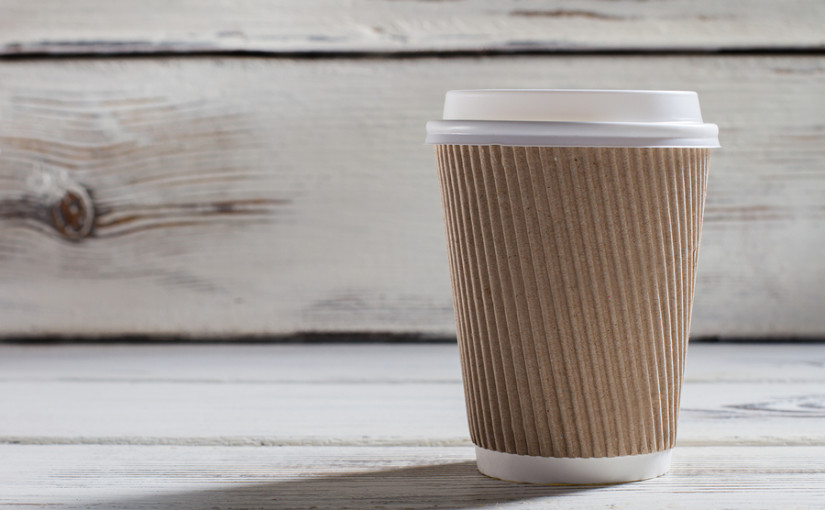A morning coffee is an essential part of the wake-up routine for many people, and the proliferation of high-quality takeaway coffee houses in towns and city centres nationwide has meant that it’s easier than ever to get that cuppa – albeit a paper one – during your commute, rather than having to contend with pods and filter papers at home within moments of opening your eyes.
But there are growing concerns about how to recycle coffee cups, after it came to public attention that the thin polythene lining, which waterproofs the cardboard cups, has meant that historically they cannot be recycled due to the difficulty of separating this plastic from the paper outer layer.
With an estimated 5,000 disposable coffee cups thrown away in the UK every minute, that’s a major mountain of non-recyclable waste going to incinerators or landfill, even though many people still think a paper cup is ‘paper’ and can therefore be thrown into the office paper recycling bin.

In the worst cases, leftover coffee leaking out of those cups can contaminate the entire bin full of paper – and render the whole thing non-recyclable in the process.
So what can we do about this problem? Well the good news is that paper coffee cups can be recycled, and a growing number of schemes are emerging to handle coffee cup waste separately from mixed recycling or paper waste.
Processing plants are finally being built that can efficiently separate the polythene liner from the paper outer, allowing the latter to be recycled to create new paper for a wide variety of uses, just as any other recycled paper waste can be.
But businesses need to get on board with this and ensure employees are educated about the challenges posed by the coffee cup mountain, and why they must not discard empty coffee cups – especially those with dregs of coffee still in the bottom – into normal paper recycling bins.

As always though, ‘reduce and reuse’ are better options than ‘recycle’ when tackling these issues head-on, and workplaces can help their employees to reduce their number of disposable coffee cups simply by providing reusable mugs in workplace kitchen facilities.
There are potential productivity benefits to this too, as it means staff have access to a caffeine boost when they need it, without having to take several minutes out of their day to head to the nearest coffee shop for a takeout.
If you provide coffee-making facilities on site, also give some consideration to the plastic pods or filter papers you use, along with any empty glass jars from instant coffee, as all of these different materials need their own recycling – jars can usually go in general glass waste, and filter papers can be used to produce fertilisers thanks to the organic content of the waste coffee grounds.
Finally, plastic pods are as much of a concern as paper cups, as both need special handling to allow them to be recycled in a valuable way, so anything you can do to reduce your use of these two very popular, but ecologically disastrous materials, is a great first step towards improving your own environmental impact on a daily basis.

